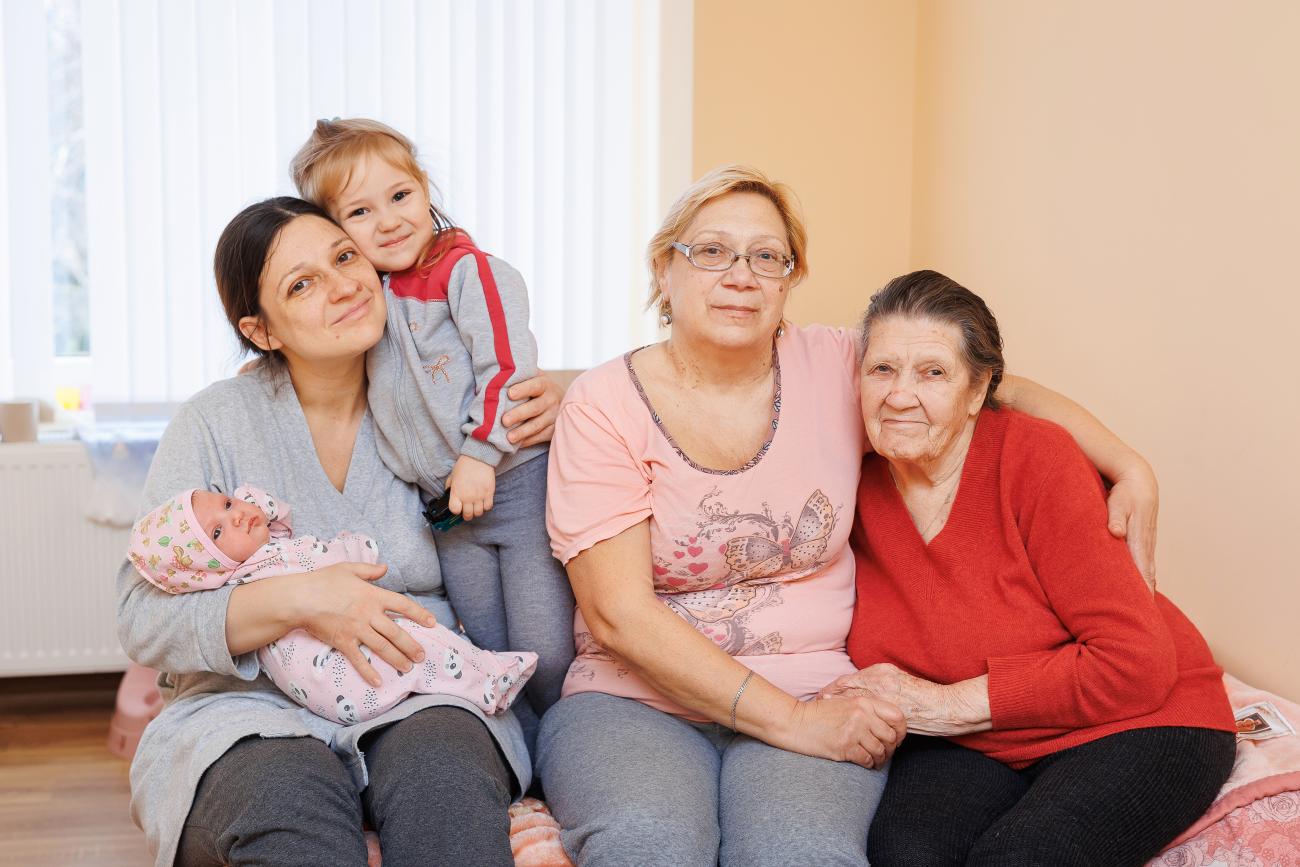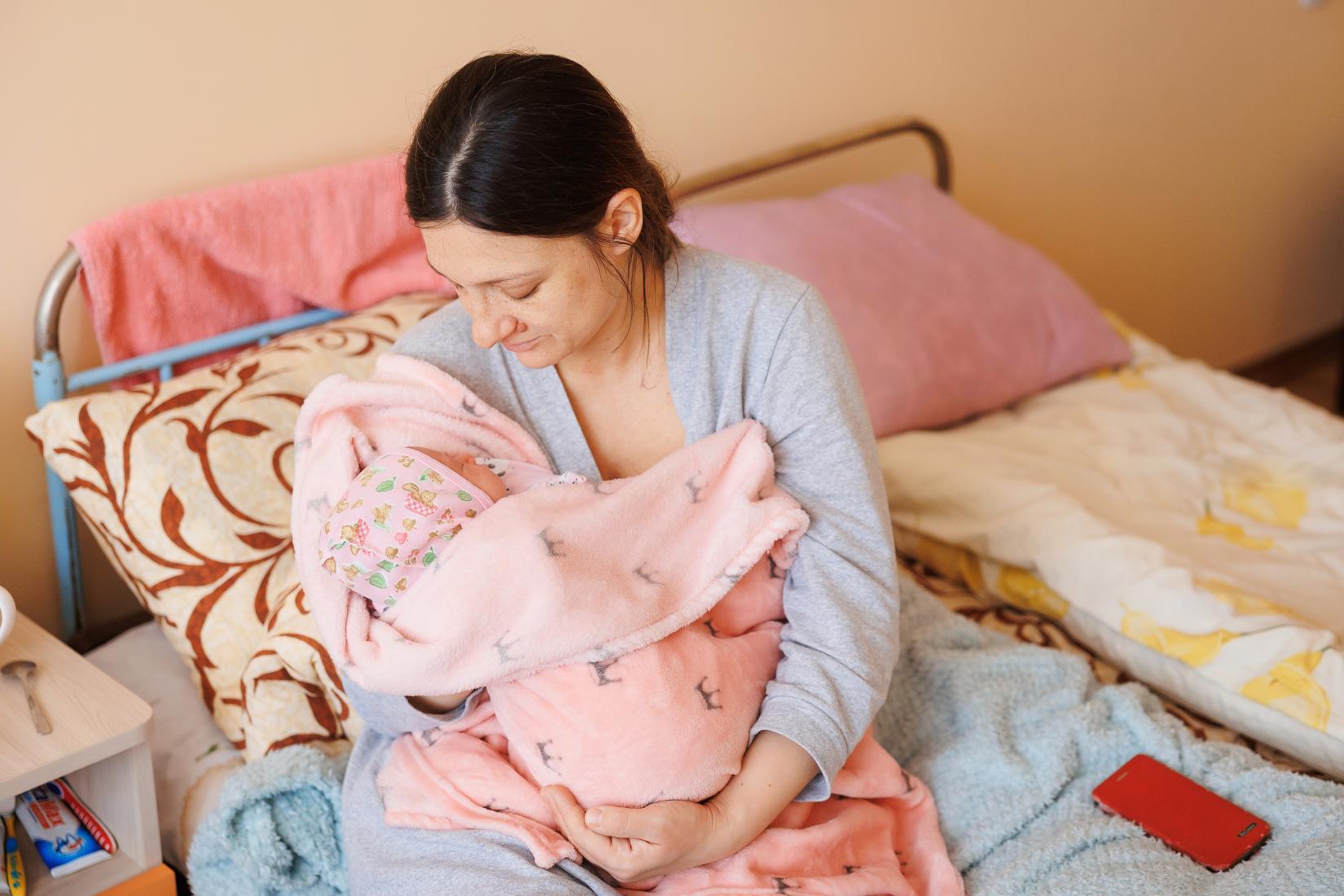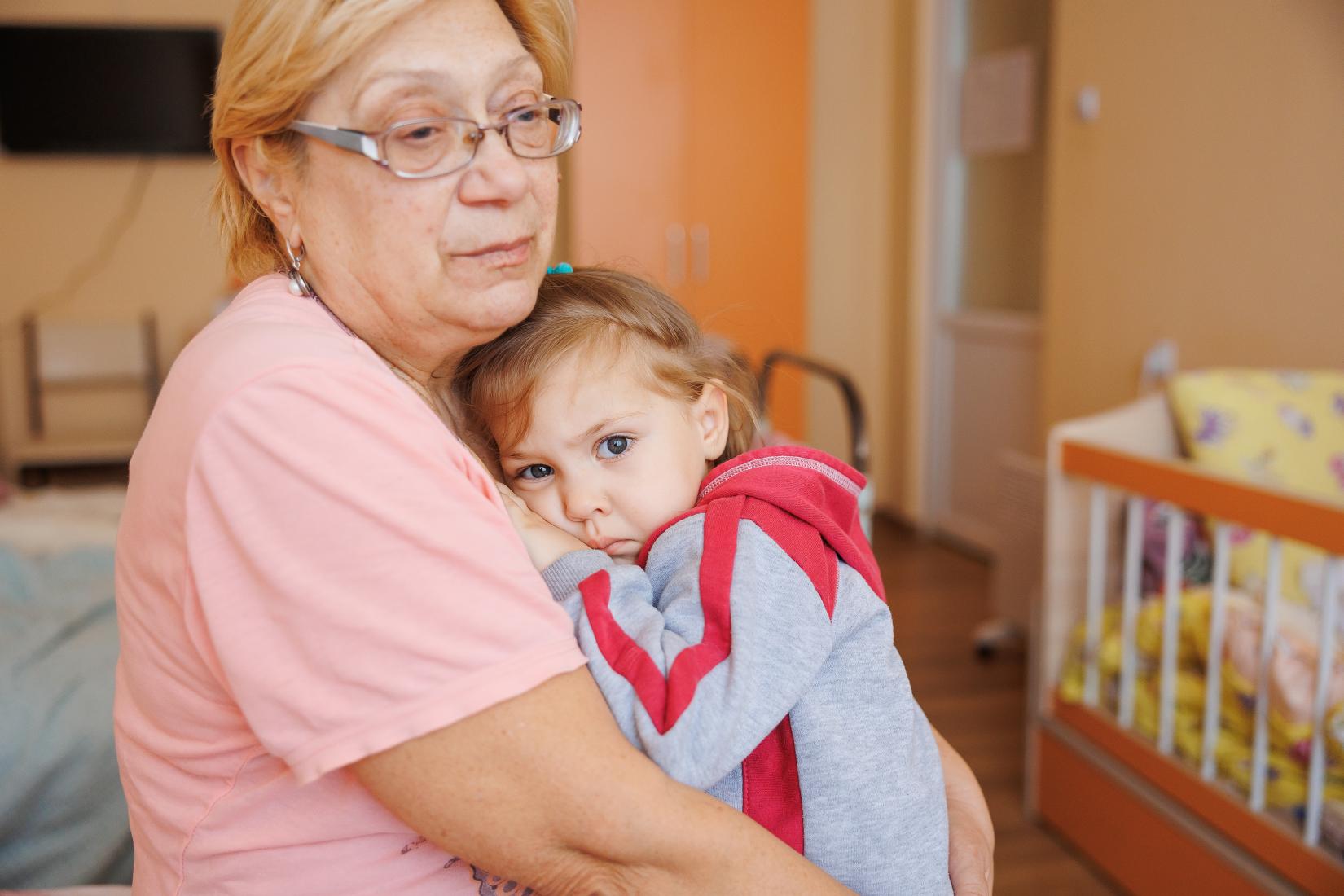Four generations of women from the same family from Odessa have found shelter in Gagauzia, Moldova

At her age (93), Nina didn't think she'd ever have to abandon her home and leave everything behind.
Four generations of women refugees from the same family from Odessa, Ukraine, have found shelter at the Center for Rehabilitation of Victims of Domestic Violence, established in Gagauzia region in 2020 with the support of UNDP. Nina Derebcinskaia, 93 years old, is the senior while the youngest one just turned two weeks old.
She lived in Odessa almost all of her life, the city where she moved when she was 17 and where she worked at a concrete factory, then in construction.
"I survived the year of 1933; I was five during the famine. Then the war started, then 1947 came with famine again. We managed with thousands of people to rebuild Odessa, which was ruined after the war. I have never thought I would live through another war,” the woman says.
Nina moves with difficulty and is almost one hundred percent dependent on her family's help.
The family’s house in Odessa is in proximity of military infrastructure, which was one of the first targets of the shelling. "We were afraid when the bombs fell close to our home; we applied adhesive on windows so they did not break and hurt us. We were told to stay on the ground somewhere in the corridor. We set up a place to stay there. Our basement is not safe for such situations, it could have collapsed on us and we would never have come out alive,” says Nadejda Ierghieva, 63, Nina's daughter.
Nadejda found the strength to leave Odessa for the sake of her daughter and granddaughters.
"Everything was shut down. The pharmacies were empty. You couldn't find anything. I have a heart condition, I couldn't find any medication, not even for the kids. You would go to the pharmacy, it said it was open... but it was actually closed,” she recalls.

Elena Cernih (39), the third woman in the family, had just given birth to her second child and returned home from the maternity ward when the war began. Elena's husband, a ship captain, was away on a mission abroad and could not help evacuate the family. The three adult women were on their own and asked a relative to drive them to the Palanca crossing point.
“You always want the best for your child. To enjoy his/her first words, first steps. Not to flee and look for a place to hide. With two small children, you don't know what to do in situations like this. In Odessa, people sleep in basements, and there are not many places to hide either,” says Elena.
"We were going nowhere; we did not expect such a positive attitude"
With a newborn baby in the car, the three women managed to cross the Palanca checkpoint easily and were a few hours later in the Gagauzia region, where they were accommodated at the Regional Center for Rehabilitation of Victims of Domestic Violence. The employees of the center provided them with everything necessary for accommodation, so that the three women and the two little girls could feel safe.
“I did not expect such a positive attitude. We were going nowhere; we didn't know anyone. We weren't even sure how to survive here, especially with a baby. I am so grateful that they received us here, where it is so good, and we are received from the heart. May the Lord give you peace! Peace, peace, peace!”, says Nadejda Ierghieva.

She adds that she is very grateful to the people of Moldova who helped them feel safe: “I want peace and to be able to return to my home. Not to be afraid anymore. I wish nobody would ever live what we had to experience.”
The Centre for Rehabilitation of Victims of Domestic Violence was established two years ago to support women and children exposed to violence.
The administration of the center decided to offer available spaces to shelter people forced to leave Ukraine, with priority given to mothers with small children.
Svetlana Gheorghieva, the Director of the Center, tells that as soon as it became known that the Center was hosting refugees, people from the neighboring villages started to bring in aid. “People offered to help from day one. Not necessarily financial aid. They donated food, hygiene products, so that the refugees had some comfort, felt safe and, most importantly, felt supported in this time of crisis.”
The three women as well as other refugees from Ukraine arriving at the Center in Gagauzia benefit not only from accommodation services, but also psychological assistance and other services they need, including primary health care or legal advice.
With UNDP’s support, 23 refugees, including 13 children, are accommodated at the Regional Center for Rehabilitation of Victims of Domestic Violence in Gagauzia.



